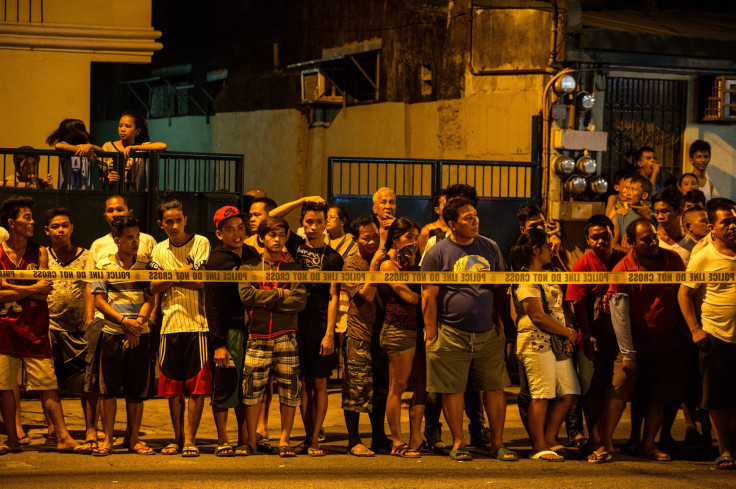Philippines Drug War: Extrajudicial Killings Under Senate Probe

Less than a week after two United Nations’ officials urged the Philippines to curb the drug offences-related extrajudicial killings that have been on the rise since President Rodrigo Duterte took office on June 30, the country’s senate started a two-day hearing into the matter Monday. And, according to the head of Philippines National Police (PNP), about 1,800 people have been killed in drug-related encounters since July 1, more than half by unofficial vigilantes.
The senate inquiry was initiated by the committee on justice and human rights, along with the committee on public order and dangerous drugs. It is questioning families of those killed in Duterte’s war on drugs as well as police officials. Relatives of those killed took the stand to describe the police actions.
Watch: Harra Kazuo recalls PNP killing of partner https://t.co/sDo55hwVGt https://t.co/PA9Rwm9OlR
— CNN Philippines (@cnnphilippines) August 22, 2016
Even the country’s Commission of Human Rights was present at the inquiry and accused the police of torturing drug traffickers and users.
Commission on Human Rights: Police officers committed torture https://t.co/sDo55hwVGt https://t.co/CCZSu4t8WJ
— CNN Philippines (@cnnphilippines) August 22, 2016
During questioning, PNP chief Ronald Dela Rosa told the inquiry that 712 drug traffickers and users had been killed by police officers since the beginning of July, and that his department was investigating those killings. He said PNP was also investigating another 1,067 killings that were allegedly carried out by vigilantes.
Dela Rosa was insistent that the police were not involved in the latter deaths, saying PNP does not condone vigilante killings. “We have nothing to do with vigilante killings,” he said.
PNP Chief Dela Rosa on vigilante killings: These are "deaths under investigation" https://t.co/sDo55hwVGt https://t.co/UA3HPzN2Xx
— CNN Philippines (@cnnphilippines) August 22, 2016
In a speech Sunday night, Duterte had issued a threat to leave the United Nations after the rebuke from its human rights experts. However, Philippine Foreign Minister Perfecto Yasay said Monday the country would remain in the U.N.
“We are committed to the U.N. despite our numerous frustrations and disappointments with the international agency,” he said.
More than 600,000 people have voluntarily surrendered since June, when the anti-drug drive began. In May, Duterte won the presidential election with his main promise of ending drug use in the country. Two weeks ago, Duterte publicly announced names of officials, including mayors and other politicians, judges, and security personnel, who he accused of drug-related corruption. Senator Leila De Lima, one of the people accused by Duterte, kicked off the ongoing inquiry.
© Copyright IBTimes 2024. All rights reserved.











